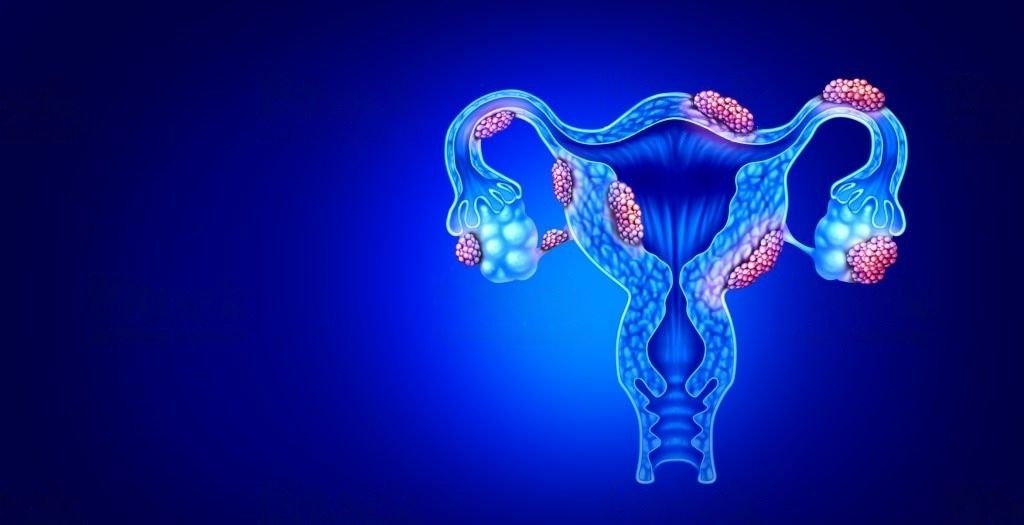Navigating Nutrition for Indian Women with Endometriosis
Including sources of beneficial fats, antioxidants, and gut-supportive foods in your diet while steering clear of foods that could trigger symptoms can play a pivotal role in managing the symptoms associated with endometriosis.

Endometriosis is a chronic medical condition that affects a significant number of women, especially during their reproductive years. It is characterized by the growth of tissue similar to the lining of the uterus outside the uterus, leading to pain, inflammation, and fertility issues. While the exact cause of endometriosis is still not fully understood, there is growing evidence suggesting that nutrition plays a crucial role in managing its symptoms and improving overall well-being for Indian women with endometriosis. This blog explores the dietary considerations and nutritional strategies that can be beneficial for managing endometriosis.
Nutrition and Endometriosis: A Complex Connection: Endometriosis involves chronic inflammation and hormonal imbalances, which can be influenced by dietary choices. While no specific diet can cure endometriosis, certain dietary changes may help alleviate symptoms and improve the quality of life for women dealing with this condition.
Balancing Macronutrients
- Incorporate Healthy Fats: Omega-3 fatty acids found in fatty fish like salmon, flaxseeds, and walnuts have anti-inflammatory properties that can help reduce inflammation associated with endometriosis. These fats may also support hormone regulation.
- Complex Carbohydrates: Opt for whole grains like brown rice, quinoa, and whole wheat bread over refined grains. Complex carbohydrates provide sustained energy, promote gut health, and help maintain stable blood sugar levels, which can have a positive impact on hormonal balance.
- Protein Intake: Include lean sources of protein like poultry, fish, legumes, and tofu. Protein is essential for tissue repair and immune function.
Vitamins and Minerals for Endometriosis
- Vitamin D: Adequate vitamin D levels are associated with reduced inflammation and improved pain management. Exposure to sunlight and dietary sources like fortified dairy products, fatty fish, and egg yolks can help maintain optimal levels.
- Antioxidant-Rich Foods: Fruits and vegetables rich in antioxidants, such as berries, citrus fruits, spinach, and kale, can help combat oxidative stress and inflammation.
- Iron: Many women with endometriosis experience heavy menstrual bleeding, which can lead to iron deficiency anemia. Iron-rich foods like lean red meat, beans, lentils, and fortified cereals can help prevent anemia.
Supporting Gut Health
- Fiber: High-fiber foods like whole grains, fruits, vegetables, and legumes support gut health by promoting regular bowel movements and aiding in the elimination of excess hormones.
- Probiotics: Fermented foods like yogurt, kefir, sauerkraut, and kimchi contain probiotics that can contribute to a healthy gut microbiome, potentially influencing hormonal balance and inflammation.
Managing Inflammation
- Turmeric: Curcumin, the active compound in turmeric, has anti-inflammatory properties that may help alleviate pain and inflammation associated with endometriosis.
- Ginger: Ginger also possesses anti-inflammatory properties and can be included in the diet through teas, smoothies, or as a seasoning.
Avoiding Trigger Foods
- Dairy and Gluten: Some women with endometriosis report improvement in symptoms when they reduce or eliminate dairy and gluten from their diets. These foods may contribute to inflammation and digestive discomfort in sensitive individuals.
Hydration and Endometriosis
Staying hydrated is crucial for overall health, and it can also play a role in managing endometriosis symptoms. Hydration supports digestion, circulation, and overall bodily functions. Herbal teas, infused water, and water-rich foods like watermelon contribute to hydration while providing additional nutrients.
SUMMARY
Navigating nutrition for Indian women with endometriosis involves making informed dietary choices that support inflammation reduction, hormonal balance, and overall well-being. While there is no one-size-fits-all approach, incorporating healthy fats, antioxidants, and gut-friendly foods while avoiding trigger foods can contribute to symptom management. Additionally, paying attention to hydration and incorporating foods rich in essential nutrients can aid in managing the challenges posed by endometriosis.
Jayti Shah is a Clinical Nutritionist with a master's degree in Clinical Nutrition and Dietetics. She is a member of the Indian Dietetic Association (IDA). Over the last 9 years, she has helped 400 clients in their clinical and weight loss journeys. She works with SocialBoat as a nutrition consultant.
At SocialBoat, we offer custom diet plans and guided workouts to help you achieve your goals in a 360-degree approach. Our gamified experience ensures that you don’t find workouts boring and we reward you for being consistent with your efforts.

REFERENCES
- Missmer, S. A., & Cramer, D. W. (2003). The epidemiology of endometriosis. Obstetrics and gynecology clinics of North America, 30(1), 1-19.
- Parazzini, F., Cipriani, S., Bravi, F., Pelucchi, C., Chiaffarino, F., Ricci, E., ... & La Vecchia, C. (2014). Dietary factors and endometriosis risk: a literature review. Reproductive bioMedicine Online, 28(4), 323-336.
- Ortega-Gomez, A., Pericacho, M., Albarran-Juarez, J., Barroso, I., Muñoz-Pacheco, P., & Sobrino, F. (2016). 3 Polyunsaturated fatty acids eicosapentaenoic acid and docosahexaenoic acid and their mechanisms of action in children. Revista Clínica Española (English Edition), 216-224.
- Moradi, M., Parker, M., Sneddon, A., Lopez, V., & Ellwood, D. (2014). Impact of endometriosis on women's lives: a qualitative study. BMC women's health, 14(1), 123.
- Cutler, D. A., Pride, S. M., & Cheung, A. P. (2018). Endometriosis-associated infertility. Obstetrics and gynecology clinics of North America, 45(2), 151-163.
- Pluchino, N., Wenger, J. M., Petignat, P., & Tal, R. (2016). Cytokines and growth factors in the pathogenesis of endometriosis. Cells, 5(2), 9.
